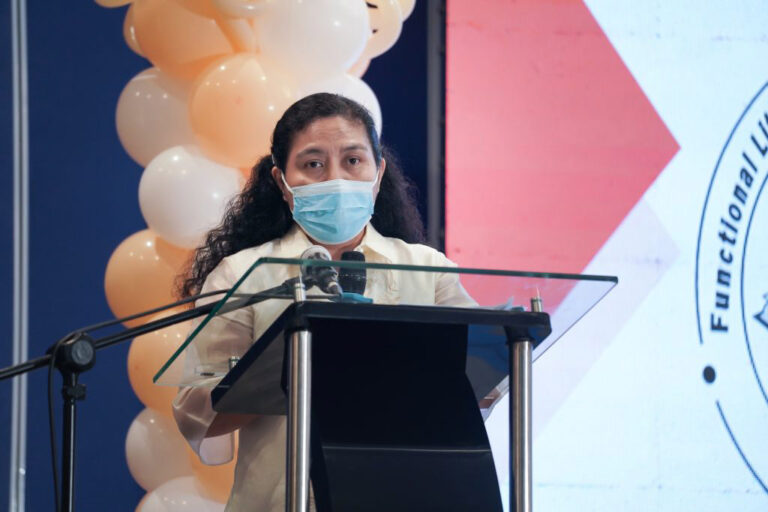MANILA – Congressman Carlos Zarate has expressed alarm over the awarding of a P43 million contract to Miescor Rail (MRAIL), a company controlled by tycoon Manny Pangilinan.
He said the Department of Transportation and Communications (DOTC) announced that a subsidiary of power distributor Manila Electric Co. (Meralco) will maintain the power supply of Metro Rail Transit Line 3 (MRT-3) along Epifanio Delos Santos Avenue, and that aside from the railway line’s power supply, MRAIL will also maintain the overhead catenary systems for six months, beginning July 5.
“It seems that they have already controlled many aspects of the operation of the problematic rail system as well as other strategic industries in our economy like electricity, water, telecommunications, health, roads and media, among others,” Zarate said.
“This is very dangerous considering that only one individual or group controls a very significant portion of our society. The apparent danger further increases if such control belongs to a foreign individual or entity like the Indonesian Salim group, which is reported to be the putative owner of the MVP group of companies. Thus, depending on the situation, such effective control can hold hostage a country,” he added.
Aside from MRAIL that supplies power and to OCS to LRT and the recently awarded P43.23-million contract for MRT, the Pangilinan-controlled Metro Pacific Investment Corporation (MPIC) also has major stakes in the AF Consortium that won the Automated Fare Collection System (AFCS). Also, along with Ayala Corp., MPIC bagged the P65-billion LRT 1 Concession deal.
Meanwhile, MPIC also has yet to exercise its option over the 48 percent interest in MRTC after it entered into cooperation agreement with the Sobrepeña-owned Fil-Estate Corp. in November 2010 regarding its interests and rights in Metro Rail Holdings Inc., Metro Rail Transit 2 Inc., and Monumento Rail Transit Corp.
Zarate claimed the agreement leads to the revival of its $300 million offer to expand the capacity of MRTC after signing cooperation agreements with various groups that hold rights and interests in MRT 3. MPIC also made a separate offer of $350 million to acquire the equity and bonds held by a private contractor that built MRT 3.
“We must remain vigilant and even take actions to prevent these kinds of contracts because before we know it all of our resources, our major public utilities and services are already under the control of foreign controlled or influenced entities. This is the main reason why we oppose Charter change that will further open up and liberalize our Constitution. Yet, now it seems that the government is doing it by piecemeal,” Zarate said.
There was no immediate reaction from Pangilinan on Zarate’s claims. Pangilinan has business interests also in broadcast media and newspapers, among many others in the Philippines.
MVP-Salim Group
In a recent article that was published in The Manila Times, it said the so-called “MVP” group of companies—dubbed after the initials of its public face and chief executive Manuel V. Pangilinan—has emerged as one of the biggest conglomerates in the country today, its newest and the most aggressive.
It said the real ownership of this vast conglomerate has been kept hidden from the public eye.
The conglomerate is dominantly owned and controlled by Anthoni Salim, 66, heir to the fortune of his late father, Soedono, who was the biggest and closest crony of the late Indonesian strongman Suharto during his 33-year regime. “MVP” has miniscule shares in the conglomerate.
That the group has strived to make it known by that name, as will be explained in this series, is for a specific purpose.
Forbes magazine ranked Salim as the third richest Indonesian in 2014, with his $5.9 billion net worth topping that of Philippine tycoon John Gokongwei’s $4.9 billion or Jaime Zobel de Ayala’s $3.9 billion, according to the same list.
The Forbes’ profile of Salim in 2014 is a revelation: “Salim’s Philippine Long Distance Telephone (PLDT) has invested $445 million [in] a 10% stake in Germany’s Rocket Internet. His father,Liem Sioe Liong founded the Salim Group; the clan was later criticized for ties to Suharto.” Salim’s PLDT, not MVP’s nor First Pacific’s.
Salim is the only billionaire in the magazine’s list who is indisputably one of Indonesia’s richest tycoons. Yet a big chunk of his wealth is generated in another nation, the Philippines. That’s how broken our nation has become.
From 2000 to 2014, First Pacific Co., Ltd. – Salim’s holding company – generated $2.7 billion in profits from its Philippine operations, mostly from PLDT amounting to $2.2 billion. In comparison, Salim’s companies in his own country generated just about half of that, or $1.4 billion. That means his Philippine operations make up 66 percent of his empire’s profits.
The Manila Times report said that Salim acquired PLDT in 1998 for $749 million, while Meralco was captured – as these series will explain – with the Indonesian bringing very little new capital into the country.
In the case of Salim’s operations, it has resulted in capital outflow – $2.7 billion in 14 years or $200 million yearly, or nearly fourth of the average foreign equity inflow over the same period.
Salim’s companies have always used local borrowings for much of its operations and acquisitions, even managing to borrow billions of pesos from government banks such as the Development of the Philippines and the Land Bank.
Those huge revenues are possible because of Salim’s controlling 26-percent holding in PLDT, the biggest telecom firm in the Philippines, which owns mobile-phone behemoth Smart Telecoms as a subsidiary, and his 52-percent stake in Metro Pacific Investments Corp. (MPIC), his holding company of 48 subsidiaries in the country. MPIC’s cash cows are the Manila Electric Co., the electricity-distribution monopoly in Metro Manila, and Manila Water Services, the monopoly for water distribution and sewerage for the western part of the metropolis, covering 17 cities.
Through MPIC’s Metro Pacific Tollways Corp., the Indonesian is now the biggest toll and expressway operator in the country, managing the North Luzon Expressway (NLEX), Subic Clark Expressway and the Manila Cavite Expressway.
The report further said that President Aquino’s administration has turned over to the Salim conglomerate some of the country’s biggest infrastructure projects – among these are toll road expansion projects such as the NLEX Harbor Link (P11 billion project cost, NLEX Citi Link (P7 billion), Cavitex expansion (P8 billion), Connector Road/Metro Expressway Link (P124 billion).
The group has diversified into bridge construction with its P18 billion project to build the Cebu-Cordova Bridge. In partnership with the Ayala group, the Salim conglomerate has won the P1 billion projects to operate a computerized fare collection for the light-rail lines.
In 2013, its 55-percent controlled Salim consortium won the project to build the P65-billion Light Rail Transit Line Cavite Extension Project, the biggest infrastructure project awarded under the Aquino Administration.
And unexpectedly thrown in as part of the project was the award of the construction of the common station of LRT lines to the consortium, which moved its location close to the Trinoma mall of the Ayalas – Salim’s partners who hold a 35 percent stake – from its original SM North Mall site. Such government decision was so patently anomalous that the SM’s Sys have sued, even bringing the case to the Supreme Court.
Salim’s latest coup was winning the Cavite-Laguna Expressway (Calax) project with its bid of P27 billion, P5 billion more than the next highest bidder, a San Miguel Corp.-led consortium.
PLDT itself, which Salim’s firms control, together with Japanese companies, is a corporate empire with 49 subsidiaries, several in strategic public utilities, the largest of which are the mobile telephone firm Smart Telecommunications and Cignal TV, the direct-to-home satellite TV firm that has the biggest subscriber base.
Salim, in effect, has over the past several years become the newest media mogul in our country, despite the categorical constitutional ban on foreign ownership of even a single share in a local media outfit.
Through a PLDT unit his executives control, Salim’s group operates TV 5 with its more than two dozen radio stations and online news edition, interaksyon.com. PLDT’s power to prop up a media outfit with mediocre expertise in the field was, in fact, demonstrated when it threw nearly P1 billion a year into advertising to its start-up firm TV-5 from 2010 to 2014. According to PLDT’s latest report, that financial support will continue until 2021.
Salim indirectly holds, through PLDT’s 70 percent interest in BusinessWorld and a 22 percent stake in the Philippine Daily Inquirer. Soon – I was informed by highly reliable sources – the New Standard newspaper will join Salim’s media stable.
The Salim conglomerate last year bought the Philippine Star publications for P3.5 billion from the family of House Speaker Feliciano Belmonte, who also is the principal author of a resolution for the Constitution to be amended to lift all restrictions on foreign investments. (Mindanao Examiner)
Like Us on Facebook: https://www.facebook.com/mindanaoexaminer
Follow Us on Twitter: https://twitter.com/MindanaoExamineRead Our News on: http://www.mindanaoexaminer.com/
Share The News



